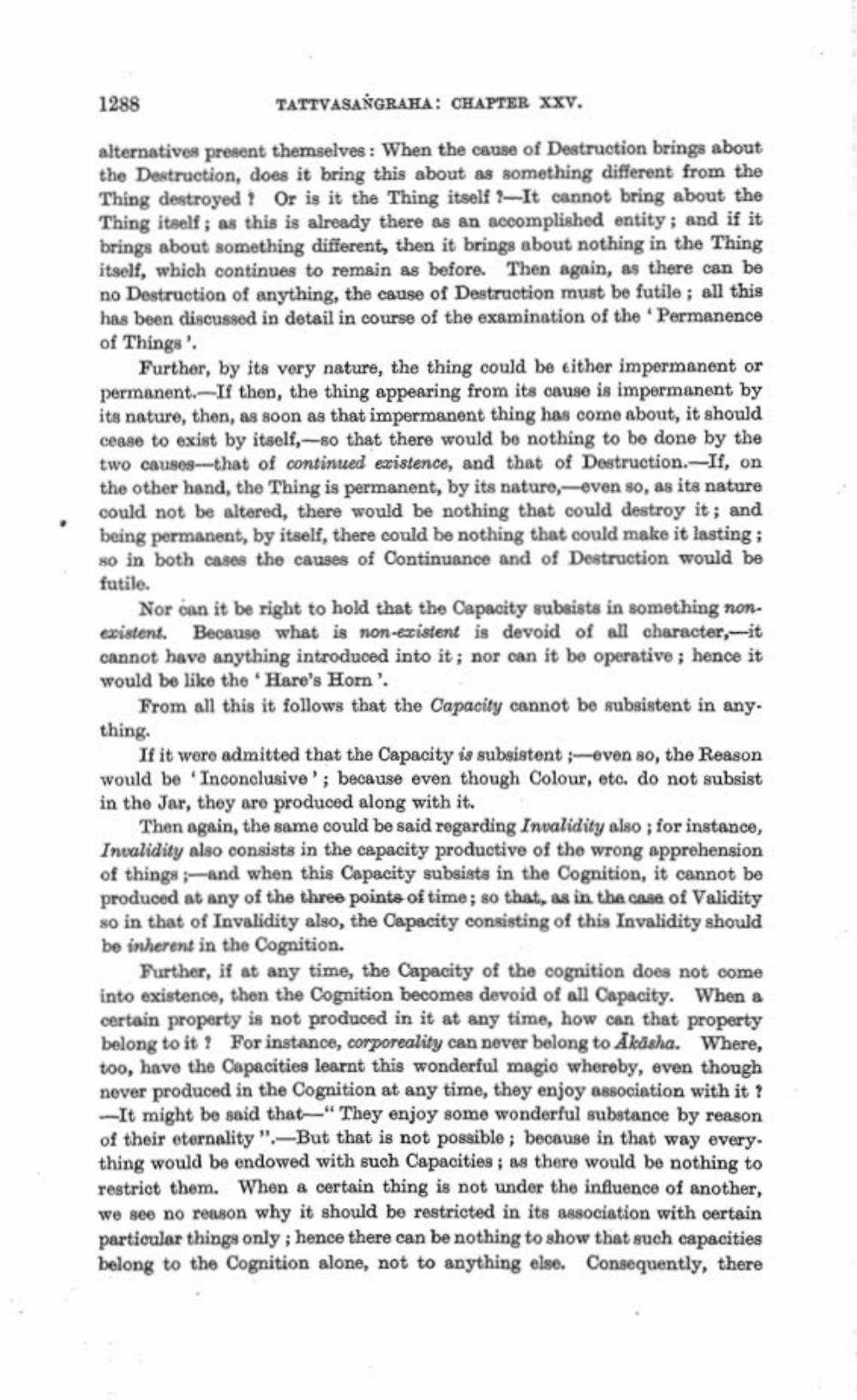________________
1288
TATTVASANGRAHA: CHAPTER XXV.
alternatives present themselves : When the cause of Destruction brings about the Destruction, does it bring this about as something different from the Thing destroyed? Or is it the Thing itself ?-It cannot bring about the Thing itself; as this is already there as an accomplished entity; and if it brings about something different, then it brings about nothing in the Thing itself, which continues to remain as before. Then again, as there can be no Destruction of anything, the cause of Destruction must be futile; all this has been discussed in detail in course of the examination of the Permanence of Things'.
Further, by its very nature, the thing could be either impermanent or permanent.--If then, the thing appearing from its cause is impermanent by its nature, then, as soon as that impermanent thing has come about, it should cease to exist by itself,-80 that there would be nothing to be done by the two causos--that of continued existence, and that of Destruction.-If, on the other hand, the Thing is permanent, by its nature, even so, as its nature could not be altered, there would be nothing that could destroy it; and being permanent, by itself, there could be nothing that could make it lasting: so in both cases the causes of Continuance and of Destruction would be futile.
Nor can it be right to hold that the Capacity subsists in something nonexistent. Because what is non-existent is devoid of all character,-it cannot have anything introduced into it; nor can it be operative; hence it would be like the 'Here's Horn'.
From all this it follows that the Capacity cannot be subsistent in any. thing.
If it were admitted that the Capacity is subsistent-even so, the Reason would be Inconclusive'; because even though Colour, eto, do not subsist in tho Jar, they are produced along with it.
Then again, the same could be said regarding Invalidity also ; for instance, Invalidity also consists in the capacity productive of the wrong apprehension of things and when this Capacity subsists in the Cognition, it cannot be produced at any of the three points of time, so that, as in the case of Validity so in that of Invalidity also, the Capacity consisting of this Invalidity should be inherent in the Cognition.
Further, if at any time, the Capacity of the cognition does not come into existence, then the Cognition becomes devoid of all Capacity. When a certain property is not produced in it at any time, how can that property belong to it? For instance, corporeality can never belong to Äkäsha. Where, too, have the Capacities learnt this wonderful magio whereby, even though never produced in the Cognition at any time, they enjoy association with it ? -It might be said that "They enjoy some wonderful substance by reason of their eternality".-But that is not possible ; because in that way every. thing would be endowed with such Capacities; as there would be nothing to restrict them. When a certain thing is not under the influence of another, we see no reason why it should be restricted in its association with certain particular things only; hence there can be nothing to show that such capacities belong to the Cognition alone, not to anything else. Consequently, there




